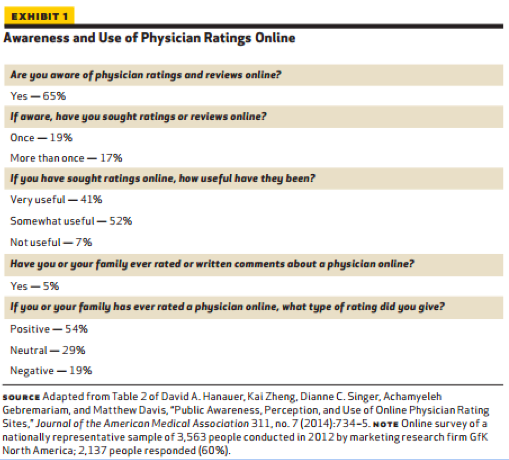 February is rapidly coming to a close, with the promise of spring right around the corner. My friends and colleagues in the greater Boston area were probably dismayed to learn that Punxsutawney Phil did indeed see his shadow a few weeks ago, “reliably” predicting another six weeks of winter. Perhaps Bostonians can take solace in the fact that occasionally Phil misses the mark.
February is rapidly coming to a close, with the promise of spring right around the corner. My friends and colleagues in the greater Boston area were probably dismayed to learn that Punxsutawney Phil did indeed see his shadow a few weeks ago, “reliably” predicting another six weeks of winter. Perhaps Bostonians can take solace in the fact that occasionally Phil misses the mark.
Speaking of missing the mark, let’s discuss the CMS Physician Compare web site. Regular readers of the Acumen blog will recall our assessment last fall of the remarkably misleading CMS Dialysis Compare 5-Star program, but you may not recall our previous visit to Physician Compare a few years ago. What’s changed since our original post almost four years ago? In truth, not much. If you believe a Medicare beneficiary can utilize the information available today on Physician Compare to make an informed decision regarding the selection of a physician, you may wish to consider asking a groundhog for advice. Having said that, let’s see what’s available on the CMS suite of Compare web sites today.
Physician Compare is another gift brought to us by the Affordable Care Act (ACA). The ACA compelled CMS to establish a web site that would permit beneficiaries to “compare” the performance of physicians, allowing the beneficiary to make informed choices when selecting a health care provider. Sounds like a wonderful idea (sort of like rating dialysis facilities with stars). Of course the devil is always in the details and as it turns out, a) quality is remarkably difficult to measure, b) this is especially true for individual providers, and c) CMS has still not quite figured out how to create a desirable user interface for an audience with marginal numeracy and literacy skills.
Today
Physician Compare is clearly a work in progress. If you take a tour through the web site today you can see some basic demographic information about individual physicians (i.e., gender, medical school attended and year of graduation, residency program and years attended). There is a handy map feature that identifies the doc’s office location. You can see what hospitals the doc is affiliated with and if he or she accepts Medicare assignments. If the physician is board certified, you can see that, but interestingly if the doc is not board certified, that’s invisible to the Physician Compare visitor. Participating in the Maintenance of Certification program was anticipated, but there may be other fish to fry with respect to MOC, as the ABIM recently announced a few substantial modifications to the program.
Quality
What about a measure of the physician’s performance? How can I use Physician Compare to compare quality among physicians so that I can make an informed choice? I’m glad you asked. You will be happy to learn that today Physician Compare displays three things on its web site for every Medicare provider:
- Successful participation in the CMS eRx incentive program
- Successful participation in PQRS
- Successful participation in the CMS EHR incentive program (aka Meaningful Use)
The leap of faith here, of course, is that participation in these programs equals quality, and lack of participation does not. I have spent a lot of time reading and writing about these programs, and I can assure you, successful participation is driven by the pursuit of a financial incentive or the avoidance of a penalty. Whether participation reflects quality remains to be seen.
Of interest, CMS has added additional quality data to the Compare web site. Starting slowly and limiting the display to only the largest practices in the country, we are beginning to see practice-based measures of quality. Later this year we will also begin to see patient experience data on Physician Compare for the largest practices in the country. The majority of what’s being reported today is founded on the Physician Quality Reporting System; it is either rolled up at the practice level or reported via affiliation with an Accountable Care Organization.
Also, the reliance on PQRS should not go unnoticed. As we have mentioned before in this blog, PQRS data is becoming increasingly important. PQRS is not only a stand-alone quality reporting solution; it forms the basis for the quality reporting component of meaningful use and plays an important role in the looming physician value-based payment modifier.
Nephrology impact
So, where does this leave the practicing nephrologist? The snail’s pace of deployment for Physician Compare has been welcomed by organized medicine, with the AMA in particular pointing out that quality measurement is not ready for prime time. Of additional interest, in the area of “physician ratings,” commercial sites such as Healthgrades, ZocDoc, and even Yelp are beating CMS to the punch, although one has to wonder about the consumer that might select a physician using the same source they might use to make a dinner reservation. Which brings me to a final thought: Will physician ratings make a difference for those searching for healthcare? In a very well-written policy brief for Health Affairs, Steven Findlay does a nice job exploring this issue. Within the brief, he repurposed data from a 2012 survey published in JAMA. I have taken the liberty of copying that chart below:

Exhibit 1 from the Health Affairs policy brief suggests that while the majority of people are aware that physician rating sites exist today, only 19% in this sample took a look. The brief goes on to state:
“Still, only 19 percent of respondents in the JAMA survey said online ratings were ‘very important’ when choosing a primary care physician—behind every other factor, including insurance acceptance (89 percent), convenient location (59 percent), years of experience (46 percent), and word of mouth from family and friends (38 percent).”
As I mentioned in 2011, the Physician Compare train has indeed left the station. What’s remarkable in hindsight is the slow pace of its departure. Payers are increasingly demanding measures of quality, and CMS, the largest payer in this country, is hungry for transparency. As a specialty, we should pay attention to this program. The CMS compare web sites are basically cousins, and we certainly do not want Physician Compare to derail as Dialysis Compare has with the 5-Star disaster. That would be worse than asking Punxsutawney Phil to recommend a nephrologist. Hibernating mammals, after all, are unlikely to require our services.
What are your thoughts about Physician Compare or other physician rating sites? Drop us a comment and join the conversation.
 Terry Ketchersid, MD, MBA, practiced nephrology for 15 years before spending the past seven years at Acumen focused on the Health IT needs of nephrologists. He currently holds the position of Chief Medical Officer for the Integrated Care Group at Fresenius Medical Care North America where he leverages his passion for Health IT to problem solve the coordination of care for the complex patient population served by the enterprise.
Terry Ketchersid, MD, MBA, practiced nephrology for 15 years before spending the past seven years at Acumen focused on the Health IT needs of nephrologists. He currently holds the position of Chief Medical Officer for the Integrated Care Group at Fresenius Medical Care North America where he leverages his passion for Health IT to problem solve the coordination of care for the complex patient population served by the enterprise.




Leave a Reply